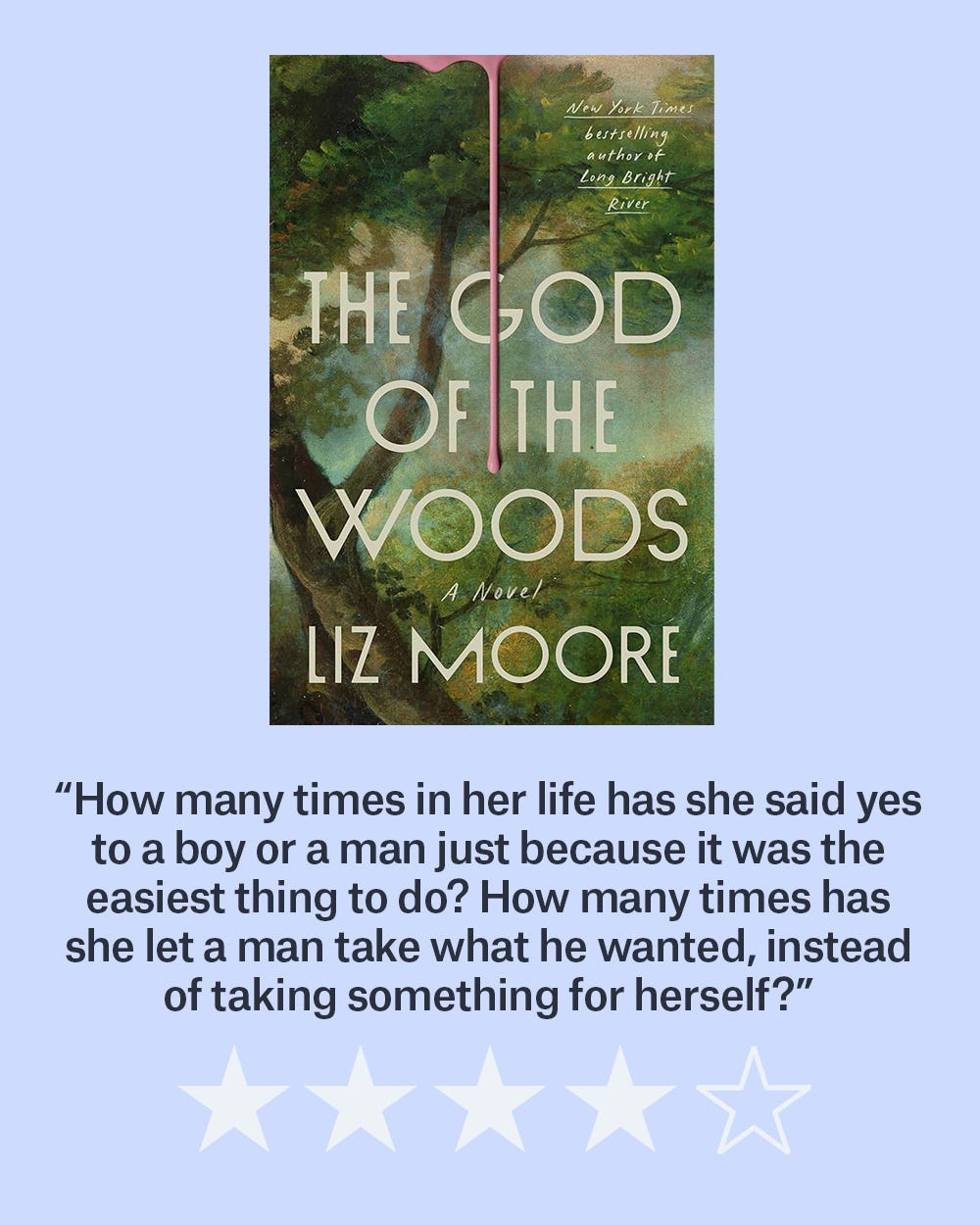Americans have never been the happiest bunch, but the problem is only getting worse.
I’m a bit late on this particular piece of news, but the Annual World Happiness Report was released in March, and for the very first time since the report was established in 2012, the U.S. didn’t rank in the top 20 happiest countries.
The sudden dropoff was attributed mostly to people under 30. For those of us who live in the U.S., a reaction to this might be: “No shit.” Or maybe you’re surprised. I’m not.
The report found its way onto my radar this week because a writer/academic/scientist I like, Arthur C. Brooks, talked about it on ‘The Genius Life’ podcast in an episode called: “The Secrets to a Happy and Fulfilled Life,” which I caught a clip of on Instagram and then listened to the whole thing.
If you’re not familiar, Arthur C. Brooks is a so-called “happiness expert” who writes a wildly successful column called “How To Build a Life,” which I am a fan of.
Brooks opens by saying that the World Happiness Report is complete bullshit, but it’s also true that Americans are getting steadily unhappier. Ten years ago, the unhappiest group among us was liberal men; today, it’s liberal women, especially white women under the age of 30.
Brooks says that the happiest people have a solid grasp on four big habits: faith, family, friendship, and work that serves others.
Though he noted it first, Brooks was quick to say that “faith” doesn’t have to be in a traditionally religious sense, even though he’s a traditionally religious guy.
He goes on to explain that for faith to qualify as a happiness maker, all you really need is to be invested in something that makes the universe seem really big and your place in it really small, but I’m going to pop a direct quote in here for what he had to say next about family:
Brooks: “Family life is incredibly important, and people who leave that behind, or have a schism because of something as stupid as politics, are making a huge mistake.”
I looked up the word schism just to make sure I had it right (noun: a split or division between strongly opposed sections or parties, caused by differences in opinion or belief). While this may not be a “this country is being run by a bunch of childless cat ladies” level comment, it still made me do a double-take.
Then we get this fun little exchange:
Brooks: “You get a country where faith is in decline, family life is in decline, friendship is in decline. People don’t see their work as a vocation. You’re going to see the climate for happiness going in the wrong direction. And that describes the United States to a tee. All four of those things are going in the wrong direction and they have since about 1990.”
Host: “Wow. Some might say that these values you’re describing are values that lean conservative.”
Brooks: “They, they, they can be interpreted that way, but most people we find are, who are, you know, politically more progressive or center left or whatever. They, they, you know, they love their families, and they’ve got good friends, and they want their work to serve. They want to work hard and they want their work to serve. And, and, a lot of people in the center left, they’re really religious too, or at least they have a sense of life’s philosophy, so this really should transcend politics.”
And then he ends on just a little giggle, like maybe he knows he’s just given a really stupid non-answer, or just given himself away.
Then, the host says that in the past Brooks has labeled conservative women as the happiest group in the U.S., which Brooks skates by to deliver the stat about liberal women being the unhappiest group today. And then he ends on:
Brooks: “I don’t think being a political conservative is a panacea for being a happy person, but we see disproportionately these happiness and unhappiness effects in different parts of the population for sure.”
And then, to really just bring this all home, Brooks delivers a little sermon about the “macronutrients of happiness” – enjoyment, satisfaction, and meaning (making sure to let us know two of his Gen Z children got married in their very early 20s and started having kids right away):
Brooks: “Those are the elements we need to find out why we’re alive and for what we would be willing to not be alive and then take responsibility for that.”
Host: “Are men and women equivalent in that sense?”
Brooks: “Men and women, everybody. Humans need meaning. You’ll find that women are more likely to say ‘my kids’ is what I’m willing to die for right here, right now, than men. I mean, if you’re a dad, you’re willing to say that too, but for women it’s the most automatic thing in the world. That’s how the maternal instinct works, and it’s a beautiful thing. And that’s a source of great meaning. And thus one of the macro nutrients of happiness for women comes from that.”
You know, all of this sounds an awful lot like what Brooks is kind of sort of saying here is that the secret to happiness is to have kids and conservative values?????????????
But we also know at least part of that isn’t necessarily true. Parents in the U.S. are 12% less happy than child-free people on average (and 13% more stressed). It even has a name – the parenting happiness gap.
I could stop, but I’m going to go on just one tiiiiny little point further. Back near the top of the podcast, they start talking about how young American men are getting more conservative while young women are getting more liberal, and now they won’t date each other due to these differences in political views. Then here’s Brooks on his wife, who he’s been married to for over 30 years:
“I’m 60. When I was 23, all I wanted to do was find my soul mate. I couldn’t care less. I mean, I fell in love with a girl who didn’t speak a single word of English. How could I know what her politics are? I couldn’t have cared less. She could be a, you know, a communist revolutionary. If she’s meant to be my wife, that’s the way I wanted to be.”
You heard it here first, gals! Straight from a happiness expert: The key to dating is to completely ignore the political views of anyone you meet and instead just stick it out for a foreign guy who falls in love with you before your first conversation! I honestly don’t think this story is as romantic as he thinks it is????
It’s funny because, before this week, I guess I just assumed Arthur C. Brooks was liberal. He’s a neuroscientist! He writes a weekly column in The Atlantic (which skews left politically)! He wrote a book with Oprah!
This week’s issue isn’t meant to be a slam on Brooks; it’s more of a reaction to how I felt hearing him speak on this podcast – like maybe there was a fox in my henhouse. All of his essays for The Atlantic are (I assume?) edited, but when he’s just speaking off the cuff, I feel like I’m listening to an entirely different person?
I’m not saying I’m not going to read his column anymore. I think it’s very good. I also think it’s now abundantly clear this man has “somewhat conservative politics” (his words), even if he wants nothing to do with the current Republican party, and that will color every single thing I consume from him moving forward.
Rant over, xoxo!
“Remember That DNA You Gave 23AndMe?” by Kristen V. Brown for The Atlantic
Whelp, I feel personally attacked and also slightly concerned that 23AndMe is on life support, because apparently our (my) DNA might soon be up for sale:
“Consumers have assumed this risk without getting much in return. When the first draft of the human genome was unveiled, it was billed as a panacea, hiding within its code secrets that would help each and every one of us unlock a personalized health plan. But most diseases, it turns out, can’t be pinned on a single gene. And most people have a boring genome, free of red-flag mutations, which means DNA data just aren’t that useful to them—at least not in this form. That’s likely a big part of why 23andMe’s sales have slipped. There are only so many people who want to know about their Swedish ancestry, and that, it turns out, is consumer DNA testing’s biggest sell.”
“‘I Just Want a Dumb Job’” by Charlotte Cowles for The Cut
Americans are obsessed with working and entrepreneurship. We know this. But this article shares the stories of three women who quit their dream jobs, and why:
“In high school, I worked at a coffee shop in the small town where I grew up, and I loved it. I got this romantic idea that I wanted to open my own chocolate shop, sort of like in the movie Chocolat.
In many ways, owning my own store was everything I had dreamed of. But once the initial honeymoon phase wore off, the work was relentless. I was barely paying myself at all — just enough to cover my rent. I remember having drinks with a friend once and being like, “I just want a dumb job. I just want to work for someone else, and not have to be on my toes all the time and not think so much.”
“The Secret Power of the 8-Minute Phone Call” by Jancee Dunn for The New York Times
I can very much relate to the idea of wanting to avoid a phone call with a friend because they always go long (it’s me, I’m the talker), but the idea of an eight minute catchup is a delight:
“I hung up, smiling and humming a little tune. I had missed her, and didn’t realize it until I heard her voice. I was also surprised by how much ground we covered without the call feeling rushed. Our connection was brief, but it was real.”
I finally finished a book that wasn’t a re-read!! The God of the Woods by Liz Moore was a literary mystery I enjoyed, but I have to say, I think it was a bit over-hyped? Ratings from my book club were clustered around the 6-9 out of 10 range; I landed at a 7/10. I’m honestly not very good at guessing in a “whodunnit” scenario, but I had this one pegged less than halfway through, so that may be why I didn’t rate it higher. It’s fun, though! And the prose is really nice, especially for the mystery genre.
The most notable thing from this week is a posthumously released electro-pop album by the late Scottish producer, SOPHIE. The story is tragic. SOPHIE was trying to get a better view of the full moon by climbing onto a rooftop when she fell to her death in 2021, which is completely fucking devastating. She worked with people you know (Charli XCX’s “So I” from Brat is about her), but you may never have known who she was.
SOPHIE’s brother finished her self-titled second album, which is one of the best and most thought-provoking I’ve heard this year. It’s a bit sci-fi, a bit techno, and undeniably melancholy. Songs like “Exhilarate,” “My Forever,” and “Reason Why” will make it into my regular rotation for at least the rest of the year, if not much longer than that.
This wasn’t even the spicy essay I was writing last week, if you can believe it. The election is in a month! I’m fired up! Come give me your thoughts, hot takes welcome:
















I'm grateful for you to in unearthing these elements about this author, but want to say I'm happy to, as a liberal, to take advice from either side of the spectrum - as long as it's grounded in solid, non-partisan research - which I think his is. I think that the values he espouses are true, but that family need not be biological. I was part of a strong "second family" of LGBTQ+ folks in Tacoma, WA, and it felt more a family to me than anything I've experience w/ my biological folks... and it seemed to offer so much to the people I met there that were very much looking for this sense of community. All of the other elements help as I can understand the welcome grounding nature of faith, even if I am an atheist. I think a lot of his advice is take it or leave it - ya know? Like these elements help - choose which you want to work on to find your happiness.
You may have noticed it's almost entirely men pushing this line. And there's a reason for that: having kids DOES tend to make them happier. It doesn't make women happier. Having kids actually in the house makes both men and women slightly less happy, though women moreso than men. But once they're grown and leave the house, men with kids are happier -- women are not. At no point in the lifespan is any woman happier than one without kids. This isn't something I ever rub in anyone's face or even bring up, unless I'm talking to other intentionally childless people, but the results on this have been shown in tons of studies, and also it's kind of just obvious looking around at people you know.
Check out the chart at the bottom of this page, which is the one that's most fascinating to me: https://ifstudies.org/blog/does-having-children-make-people-happier-in-the-long-run . Women with kids are about 15% less happy, and that HAS NOT CHANGED since they've been studying it, about 50 years ago. But it's men who have changed dramatically. Kids USED TO make men a lot less happy in the 70s -- but that line just keeps going up, and now fathers are profoundly more happy than mothers, while nothing has changed at all for women. So for all the bitching and moaning they do about feminism and how women's lib has made women miserable, what it actually appears to have done is make fathers far more satisfied and happy with their lives, without much of an effect on women at all!
The reason that aggregated studies sometimes appear to come out showing that "conservative, married mothers" are the happiest of all is that they're not separating out other factors that apply. Married mothers tend to be far richer and more secure, financially, than everyone else. If you hold steady for wealth, this trend doesn't hold, it's just that conservative married mothers have more household wealth than most -- except for those without children of course, who have the most wealth of all. And of course, unmarried, single mothers are the least happy people of all, and the problem is that it's too easy to move from one category to the other, if your life is dependent on a man sticking around.